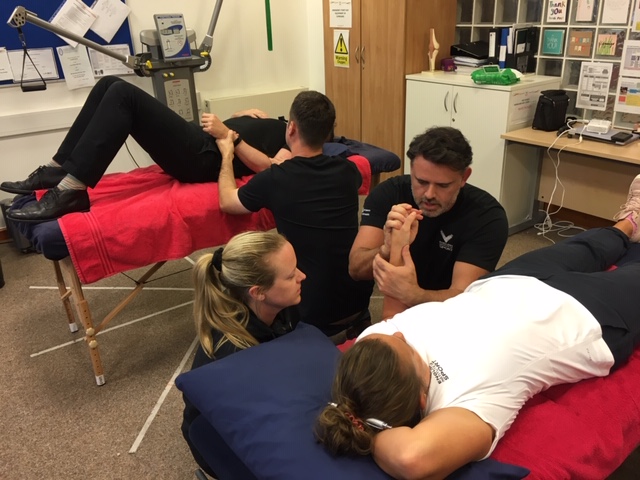ESPA: EIS Physiotherapists continue to prepare for Tokyo
Development opportunities for English Institute of Sport physiotherapists continued at the weekend (21st – 22nd September 2019 ) as practitioners undertook the Upper Limb module of the Elite Sport Physiotherapy Accreditation (ESPA).
This time, the session focussed on the development of knowledge and skills in upper limb assessment, rehabilitation, and performance threat management. Facilitated by Ian Horsley, Ian Gatt and Jane Carre, the weekend was attended by a wide variety of practitioners from various sports including triathlon, swimming, and women’s rugby.

ESPA is an M-level accredited, practical, contextual problem solving programme designed to support the technical development of practitioners working in elite sport.
EIS Technical Lead Physiotherapist Ian Horsley commented that “one of the real advantages of the EIS is how closely senior physiotherapists with specific specialist interest and knowledge (in this case, the upper limb) can work with other members of the physiotherapy team to provide insight and mentorship to practitioners. Our aim is that ESPA, along with other CPD opportunities, including access to our internal knowledge platform ABSORB, facilitates and fast tracks this technical development journey.”
To date, over 75% of EIS physiotherapy practitioners have been involved with the ESPA programme, either through attendance at modules or by being part of the teaching team.
EIS Head of Performance Support (Boxing) Ian Gatt said “Collaboration and knowledge sharing is what makes the EIS such a great organisation. This ESPA Upper Limb weekend is all about practitioners having the opportunity to acquire contextual technical and non-technical skills which they can immediately implement in their respective sports. It is a very intensive weekend however definitely not missing the required dose of banter which makes this an ideal learning environment. Looking forward to the next cohort!”
Over the next two months, the team will be running the Spinal module and Paralympic module to support final practitioner preparations towards Tokyo.
How does what we see impact what is required and relevant to performance?? 🧐 @Back_in_Action & @iangattphysio showing off their skills @eis2win #eisEspa upper limb weekend 🥊🤼♂️🏉 #sportsphysio #punching #injury #magician #magictrick #fancyfootwork pic.twitter.com/wUWsoFARW9
— Dr Gemma Parry (@GemmaNParry) September 22, 2019